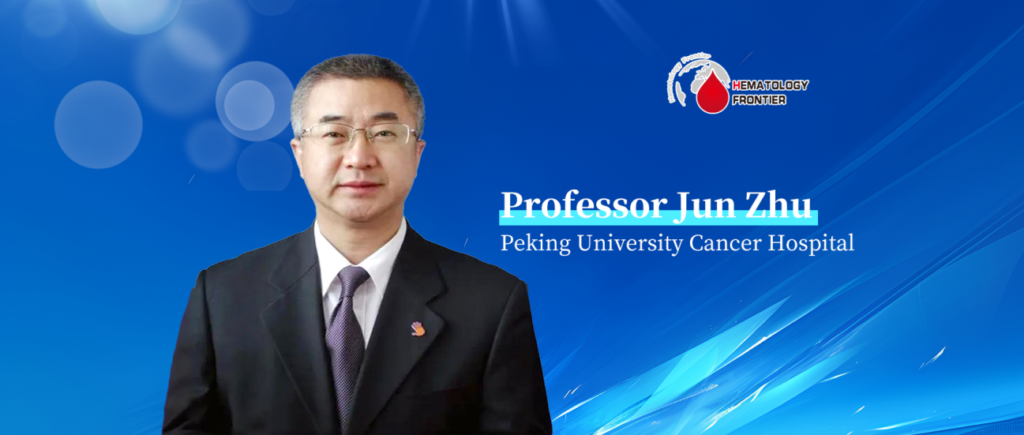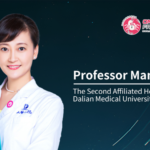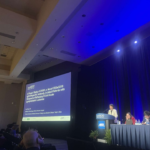
Editor's Note: As summer begins, the sun shines warmly and everything thrives. In this vibrant season, two major international events in the pharmaceutical world—the American Society of Clinical Oncology (ASCO 2024) and the European Hematology Association (EHA 2024) annual meetings—are about to take place. These meetings are not only platforms for showcasing global pharmaceutical innovations but also important venues for domestic and international oncology and hematology experts to exchange ideas and spark insights. On the eve of these events, Oncology Frontier - Hematology Frontier invited Professor Jun Zhu from Peking University Cancer Hospital to discuss "Chinese Original Drugs on the International Stage: Opportunities and Challenges." Under Professor Zhu's guidance, we will review the achievements of Chinese anticancer drugs in lymphoma treatment, examine the gaps with international standards, and look ahead to future developments. Through continuous learning, innovation, and international cooperation, Chinese anticancer drug research and development (R&D) will reach new heights, bringing hope to cancer patients and contributing to the dream of a Healthy China with Chinese wisdom and strength.Targeted and Immune Therapies: Chinese Innovations on the International Stage
Professor Jun Zhu: At this year’s ASCO and EHA meetings, we will present and introduce two significant research findings on Chinese original drugs. One study is a phase II trial (TPS7098) on the efficacy and safety of LP-168 monotherapy in relapsed/refractory mantle cell lymphoma (R/R MCL). Bruton’s tyrosine kinase (BTK) inhibitors have recently gained prominence in the treatment of B-cell lymphomas, including mantle cell lymphoma. LP-168 is a new generation, highly selective BTK inhibitor that can covalently bind to wild-type BTK and non-covalently (reversibly) bind to C481 mutant BTK, thus offering the advantages of both covalent and non-covalent BTK inhibitors. Our department, as the PI unit, has collaborated with colleagues nationwide and is nearing completion of this trial. The data show that this unique, independently developed Chinese BTK inhibitor has achieved significant results in R/R MCL, with outstanding safety and efficacy. If this BTK inhibitor successfully completes clinical trials and obtains market approval, it will greatly enhance the application of BTK inhibitors in China, providing a new treatment option for Chinese lymphoma patients.
The other study involves a new CD20/CD3 bispecific antibody, CM355, for subcutaneous injection, examining its efficacy and safety in relapsed/refractory B-cell non-Hodgkin lymphoma (P2097). CM355 is another original Chinese drug that eliminates malignant B-cells by inducing T-cell-dependent cytotoxicity. Its asymmetric affinity for CD20 and CD3 reduces antibody capture in T-cell tissues and avoids FcγR binding, thereby lowering the risk of cytokine release syndrome. Our department, as the PI unit, is conducting this clinical trial with nationwide colleagues. The trial has progressed from initial dose-escalation to treatment-dose subcutaneous injection. Subcutaneous injection was chosen for its potential convenience compared to intravenous injection and its advantages in safety control. We eagerly await the trial results.
Overall, these two drugs represent innovative trials in macromolecular antibody drugs and small molecule drugs, respectively, and hold significant positions in lymphoma immunotherapy and targeted therapy. They also demonstrate China’s steady progress in lymphoma drug development. We hope that these efforts will provide more treatment options for lymphoma patients in China and globally.
Revolutionizing Traditional Treatment: Leading the Chemotherapy-Free Era in Lymphoma
Professor Jun Zhu: Currently, lymphoma treatment in China has entered the new drug era, with representative drugs including macromolecular antibody drugs such as antibody-drug conjugates (ADCs), bispecific antibodies, and multispecific antibodies. Additionally, small molecule drugs and cell therapies, such as CAR-T cell therapy, are continuously developing. These promising combinations of treatment modalities are expected to bring new options and hope for lymphoma treatment, potentially revolutionizing traditional radiotherapy and chemotherapy models and leading lymphoma treatment into a chemotherapy-free era. Therefore, we eagerly anticipate the continued advancement of these new drugs. During this process, China’s new drug R&D has made significant progress, narrowing the gap with developed countries and showcasing China’s comprehensive advancements in lymphoma drug development. We believe that the presentation and exchange of these new drugs at the upcoming ASCO and EHA meetings will undoubtedly enhance China’s international reputation and influence in original drug development, further driving the flourishing development of the entire original drug industry.
Three Decades of Practice: Witnessing the Journey of Chinese Drug Development
Professor Jun Zhu: As a clinical physician, I have deeply experienced the development of Chinese anticancer drugs over the past three decades. In the past, we had very few new drugs available, but now, more and more new drugs are serving patients in China and worldwide. This progress not only reflects breakthroughs in Chinese drug development but also enhances our influence in this field. Moreover, the advancements in Chinese drug development have significantly accelerated the entry of foreign new drugs into China. Previously, it took years, even over a decade, for foreign new drugs to enter China after their market approval. Now, with the accelerated pace of Chinese independent R&D, the time for foreign new drugs to enter the Chinese market has been greatly shortened. This reflects the importance that multinational companies place on the Chinese market and patient population. I believe this is mainly due to China’s rich patient resources, which create opportunities for us to provide more options for patients. Therefore, the efforts and progress in this area give us a glimpse of future development prospects.
Moving Forward: Strengthening Original Research to Build a Healthy China
Professor Jun Zhu: In the past 10-20 years, Chinese original anticancer drugs in lymphoma treatment have made great strides, with significant improvements in R&D capabilities and treatment efficacy, bringing new hope to lymphoma patients. However, we must also recognize that compared to international advanced levels, there are still gaps in new drug R&D, technological innovation, and clinical application, and development across different regions in China is uneven. To narrow this gap, we must maintain a humble attitude, actively learn from advanced international experiences and technologies, and strengthen extensive exchanges and cooperation with the international community. In the current complex and ever-changing international landscape, we should remain humble and cautious, continuously enhance our confidence, strengthen our independent innovation capabilities, and constantly improve the level of anticancer drug R&D. Only by working together with firm confidence can we advance Chinese medicine, Chinese pharmaceuticals, and China’s anticancer endeavors, contributing more to achieving the “Healthy China 2030” cancer control goals, and enabling cancer patients, especially lymphoma patients, to live longer, better, and with higher quality of life.


